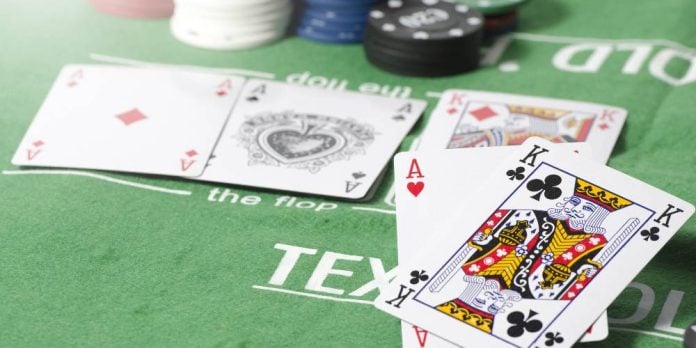When news outlets started covering that Rep. Gene Wu had introduced a bill that would potentially shut down Texas poker clubs, he was confused. He had previously sponsored poker club legislation and considers himself an ally of many card rooms in the state.
Then he read the submitted bill and realized the problem.
The version of the bill that was prefiled last month failed to include an important piece of language. In addition to the bill clearly defining what “private” games mean, it would also leave it to the county governments to regulate poker clubs.
“What we intended to add into it was, if you’re doing it out in the public and for commercial purposes, you must be regulated by the county,” Wu explained.
Bill missing language allowing counties to regulate poker clubs
As an attorney in addition to serving in the state legislature, Wu found the current law around private poker games confusing both for citizens and for law enforcement.
“Each and every single jurisdiction now has a different interpretation of what private means. So literally, you can be in one county, and it’s perfectly legal, you step across the line to another county, and you’re now a criminal. And in a county like Harris County, where we have like 28 different law enforcement jurisdictions, it can depend on who’s the Chief of police,” he said. “That’s bad public policy. People should know whether they’re committing criminal acts or not. We have an entire line of Supreme Court cases about ambiguity, about what is the intent of the law, and we shouldn’t enforce laws that are too ambiguous for people to follow. So that’s where we are.”
Wu would leave it to the 254 counties in the state to choose how, or even if, they want to regulate poker. How they choose to do that is up to them.
“Whatever that regulation looks like, I don’t care. Having 254 regulations is better than having thousands of regulations. And what’s worse is the current system where the legality of the action changes on the administration.”
Bad actors causing problems for more reputable Texas poker clubs
Wu also said that not all poker clubs are created equal. Some are running legitimate businesses, while others are cutting corners and skirting rules. Law enforcement finds its hands tied when it comes to trying to address the latter without impacting the former.
“Like all public policy people will ask, ‘Why are you guys regulating this?’ The answer always is because 5% of the people ruin it for the other 95%.”
With some of these clubs setting out food but not serving it and other workarounds, they avoid the need to have permits like a more traditional restaurant or bar. With no permits to pull, it is tougher to shut the clubs that are bad actors down.
“I’ve talked to a lot of operators, who pay their employees, they pay their taxes, their employees get 401Ks, or their dealers are licensed and certified. You’re spending more money. You’re unable to compete with people who are paying cash to their employees under the table, who have totally unqualified dealers, and who are cheating their customers,” Wu said.
If counties implement something even as simple as a $10 filing fee for a license, the Commissioners Court and law enforcement in that area have more recourse to address problems.
Rep. Wu supports statewide gaming regulation efforts
Wu’s county-by-county approach differs from the Senate bill, which seeks to establish a Texas Gaming Commission and license casinos in the state. Wu isn’t opposed to that idea.
“If I had a magic wand, right, this would be regulated in an all-encompassing, full legalization of gambling in Texas, which I support.”
Wu warned that there will be resistance any time gambling comes up in the state legislature. When Wu tried to pass a poker bill specific to his native Harris County and the Houston area during the last session, gambling opponents quickly organized and loudly pressured lawmakers not to support it.
“I don’t think the state is going to pass legalized gambling,” he said. “We might possibly have a chance at sports betting. Possibly. I don’t think it’s that great either.”














